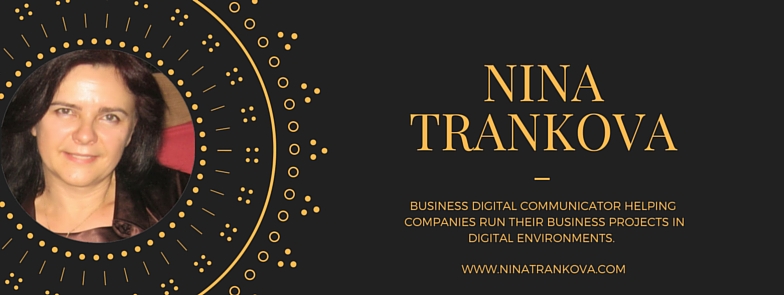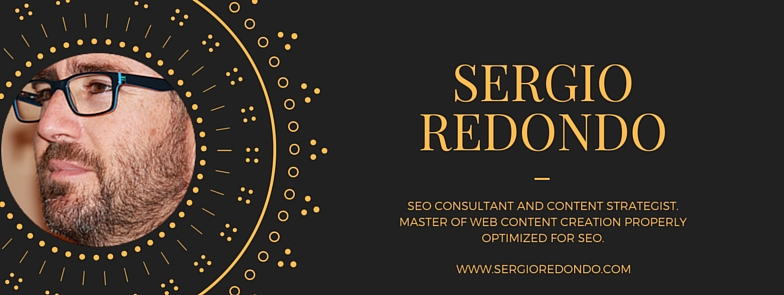The best blogging strategy is the one not aimed at short-term gains but focused on long term results and benefits.
Two weeks ago I missed a Twitter chat organised by SEMrush so I decided to give my opinion on the topics discussed that day in an improvised conversation with David, Sergio, Teodora, Gina and Nina.
In simple words, I asked 5 top blogging, content marketing, and online marketing experts to answer six important question about blogging in connection with branding and lead generation.
Welcome to my improvised #Semrushchat Uncut

David Amerland is an author of many best-selling books including “Google Semantic Search”, “Google+ Hangouts for Business” and most recently “The Tribe That Discovered Trust – How Trust is Created, Propagated, Lost and Regained in Commercial Interactions”. When he is not writing, he is advising a handful of companies globally, blogging for a number of websites, including Forbes, journalism.co.uk, Imassera and Social Media Today and writing for a number of high profile magazines and newspapers. Favourite movie Rocky 44.
Q1: What are your five most indispensable blogging tools?
Google Keep (it keeps me current and I save all ideas, suggestions and links to it), Evernote – it has become my indispensable library at the moment. One Tab (on my laptop I can assign and forget groups of links I need to get back to later), my phone (see Keep) and my Tablet (for Evernote)
Q2: What are some sure-fire ways to grow your blog audience? Is there a recipe that works for all?
Yes. Write stuff that really excites you. Don’t write just for writing’s sake. You really cannot fake the sense of purpose that comes from writing that burns inside your mind.
Q3: Can marketers combine blogging and lead generation? What strategy has worked for you?
Not in the traditional sense. There is too much content being produced every minute of every day for anyone to really bite to the “contact me here” link at the bottom of a blog post they’ve just read. But in terms of brand visibility blogging really works and it does swing purchase decisions at the crucial time.
Q4: How can marketers measure the impact that blogging has on their brand’s overall performance?
Citations, reshares, mentions but also by the sheer size of their online audience. If they are still in a dark box after blogging for a while the chances are they’re not doing it right.
Q5: What are some common SEO-related mistakes that bloggers make and how can you fix them?
Write using clickbait titles (they piss people off), Write using the 5-great-this or the 10-essential-that formulae – they are beginning to sound increasingly dumb. Write like they are talking to imbeciles (because they think laymen do not get what they are saying) or write like they are talking to industry experts (because they forget who they are communicating with).
Q6: As a reader, what’s something you wish bloggers would stop doing?
Two things: A. Stop using the “this is the most important article I have ever written” approach – I mean, really? If I see that again am I to really think that from now on a blogger’s writing will just suck? And stop asking me to subscribe to a mailing list five seconds after I land on your blog. I am an adult. I know what I want and I do actually know how to follow you. The mailing list pop up really gets on my nerves.
Sergio Redondo is an SEO Consultant and Content Strategist. Master of web content creation properly optimized for SEO. Not really a big fan of Justin Bieber. More like Jazz and Heavy Metal lover.
Q1: What are your five most indispensable blogging tools?
Of course, WordPress for editing and publication. Twitter, Facebook and G+ for spreading the word. Keyword Planner Tool for content research. And, although you can’t believe it, a pencil and a notepad: I still like to make my first draft like old school ;).
Q2: What are some sure-fire ways to grow your blog audience? Is there a recipe that works for all?
In my opinion the capability of adding value to users and gain trust. If you offer awesome content (whatever format you choose) at the end, users will give you credit.
Q3: Can marketers combine blogging and lead generation? What strategy has worked for you?
It connects with previous question: if users find in your website useful info and they identify you as a trustful source, they could become not only in future clients but even evangelists of your brand/services/products.
Q4: How can marketers measure the impact that blogging has on their brand’s overall performance?
Links, mentions, phone calls. You don’t only need to measure, you must ask every time someone reaches you.
Q5: What are some common SEO-related mistakes that bloggers make and how can you fix them?
A very common SEO mistake is a bad management of categories and tags pages. People use to create and create these pages without taking into account their impact on the overall SEO performance. Information architecture is a fundamental cornerstone in SEO.
Q6: As a reader, what’s something you wish bloggers would stop doing?
Please, stop writing crap with titles like ‘5 things you must…’ or ‘The best…’ and start adding value via creating AWESOME content.
Teodora Petkova is a philologist captivated with the metamorphoses of text on the Web.
With educational background in Classical Studies and Creative Writing, Teodora Petkova is an expert in helping companies to communicate with their clients and develop communities. Chocolate lover.
Q1: What are your five most indispensable blogging tools?
Conceptual: Curiosity. Respect for the reader.
Practical: My content calendar, my Evernote and my Google Drive.
Q2: What are some sure-fire ways to grow your blog audience? Is there a recipe that works for all?
Conceptual: Be true to yourself and to your audience. Put integrity in the first place.
Practical: Basic digital literacy (60 % of web “readers” are machines), clear, skimmable structure, relevant topics
Yes, there is a recipe: Breathe and make other people’s lives easier, more informed, more inspired.
Q3: Can marketers combine blogging and lead generation? What strategy has worked for you?
I don’t see the world as a place where marketers are here, blogging is there and lead generation is over there. I believe everything is interconnected and already combined. I guess, when the art of communication through writing and exchanging gets closer to serving meaning, not ads, then everything will fall into place.
Q4: How can marketers measure the impact that blogging has on their brand’s overall performance?
Conceptual: Ignited action and changes, lead by a content piece
Practical: number of returning visitors, average time spent on the page, social signals
Q5: What are some common SEO-related mistakes that bloggers make and how can you fix them?
Not taking care of the technical side of web visibility (meta descriptions, proper taxonomy, inappropriate snippets for social media)
Q6: As a reader, what’s something you wish bloggers would stop doing?
Use formulas for headlines: 5 do’s and don’ts of blogging 😀
Gina Fiedel is the founder and owner of a web development company called Fat Eyes Web Development. Fat Eyes Development is all about combining strategic and sophisticated web solutions in order to create websites that offer better, more authentic and effective communication, sales and marketing tools for clients and their audience. Recovering artist.
Q1: What are your five most indispensable blogging tools?
People – our clients and the others I write for, are the foundation for my blogging and create the lead I follow when I write, so they’re first in the lineup. So being tuned into their questions, needs, concerns or doubts is what matters most. The things I see and hear that may become a barrier for them in their own businesses drives what I write about. I am usually doing one of two things. Seeking to answer dssfsdsfd questions to assist in pointing their way to solutions or letting them have a window into who I am and what it would be like to work with me.
A personal mechanism I’ll mention is the connective tissue between my cognitive brain, imagination and my heart. Those inner critters create a particular thinking loop that I’m on alert for, listening for whenever I can hear it. There’s this magical juncture when ideas are rising to the surface of my mind and I find that I need to feel into them, not only poke at them with my cognitive, answer-addict brain. Allowing for that mixture opens up possibility and serendipity. If I feel that familiar heart tug, I know I’m onto something.
I also pay attention to the dialogs I’m exposed to cross-web that fit with my agenda. I look for ways to join the conversations that may be helpful to our clients and interest me. I like to absorb what other people are writing about in order to stay current and avoid isolation. It helps us (Fat Eyes) to stay connected that way.
I’m pretty basic in my approach, but if you’re looking for actual-tool-tools, then you can include:
- Inspiration & Writing: iTalk app for voice recording to capture ideas on the fly. OneTab for keeping track of research and inspiring writings. Google for researching related articles and sparks for tributaries. Microsoft Word for drafts. Google Docs for collaborations.
- Images: iPhone for taking photos, iStockPhoto and other royalty free image sources. Photoshop and Illustrator for editing & remixing.
- Blog Health & SEO: A short, incomplete list includes, WebSynthesis for Hosting & backups, Amazon for backup backups, WordPress SEO by Yoast (to a measured degree). I’m a user wannabe and working on my chops with Google Analytics and Google Search Console – a work in progress. Coming soon, we’re switching over to Social Warfare from Sociable.
- Promotion: Social channels, Mailchimp, ClickToTweet, Friends+Me, and I do wish that scheduling long-form posts with Friends+Me were possible.
Q2: What are some sure-fire ways to grow your blog audience? Is there a recipe that works for all?
One surefire path to creating work that has value and eventually, will help to grow your audience, is to dig deep into what you’re really about at core and where you can be of service. Even though, naturally, there are some tried and true measures we all may take to be noticed and read, I am not fond of corralling them into formulas.
If you know who you are writing for, why you are writing what you’re writing, if you maintain clarity with your own motives and intentions, that’s a great place to start. And don’t compromise on quality. It’s helpful to regularly check in and make sure that you are filling some gap that needs filling. At the same time, remain genuine in your approach and find the thing you have to offer that is uniquely yours. You may find that you don’t like that thing you have to offer. It being something you already possess, you stand the chance of perceiving it to be not fancy enough or unimportant simply because it’s already yours and you take it for granted. But it will be the most natural and possibly powerful place from which you can give. (pay attention to what comes naturally to you) People can smell where there’s genuine care and emotion and where it’s lacking. We’re all looking for basically the same thing. A way to really connect. Whether it be to enhance informational learning or tapping into the emotion of a thing. Sometimes, it may seem there’s no place for that in business, but I believe there always is.
Q3: Can marketers combine blogging and lead generation? What strategy has worked for you?
There’s lead generation and there’s lead generation. I love having bites on my fishing line, the excitement of that game is fun, but if it’s not the right fish, it’s worthless. This is where quality will win out over quantity every time. We can look at stats and we can measure conversions. Those give us part of a bigger story. It’s talking with and learning from people directly that gives us the most information about our successes or failures.
Q4: How can marketers measure the impact that blogging has on their brand’s overall performance?
Analytics are always there to play detective with and find the right stories. I’m working on learning how to better use them, myself. And paired with that, like I said in the last question, never underestimate the power of conversation. It’s simple to ask the people who choose your brand, why they did. And if the writing fit into that. It may not fit in at all or one article alone may have been a deciding factor. I have noticed that what I’m writing about bleeds directly into my work with prospects and clients and our dialogs feed back into my writing. My hope is always to make that loop as seamless and smooth as I can so the conversation is always occurring. That way, the blogging is always having an impact on our brand and the conversations are always having an impact on the writing. It’s a limb to the body of our brand.
Q5: What are some common SEO-related mistakes that bloggers make and how can you fix them?
Pretty much all will be well if you go about your writing in the way I’ve already described. And it’s also important to take care of the on-site optimization for each of the blog posts and their accompanying images you publish. In doing that, follow current best standards. Make sure you are taking advice from reputable sources. There is still a lot of misinformation out there. Even if there’s no direct correlation to rankings, it’s also important to expose your posts in the social media arena so they can become part of your online engagement and strengthen awareness of your expertise, connect the dots of your online relationships. Give people a chance to know you and what you’re concerning yourself with. Give them clues of what it would be like to work with you and what they can gain from your involvement with them. It will also give people an opportunity to share links to your work on their sites and thus gain your site quality links. This is part of any link building effort.
Q6: As a reader, what’s something you wish bloggers would stop doing?
I am wary of blogs that promise easy solutions and quick fixes. I love when someone is willing to break the mold and create their own style. It’s hard not to wish bloggers would stop writing to the lowest common denominator and write up to the true level of their intelligence which probably also means I wish that they would stop over-promising and under-delivering. It’s possible that I’m one of the very tiny percentage of people who enjoys reading every word if an article is worthy and high quality. We all want our stuff to be read and there are some great pointers for trying to ensure that happens, but I am disappointed when those so-called rules are followed too closely.

Nina Trankova is a Business Digital Communicator helping companies run their business projects in digital environments. Vivid cat lover.
Q1: What are your five most indispensable blogging tools?
Personal work in progress; Feature Image; Graphics; Links to Related Articles of Authorities; PDF free docs;
Q2: What are some sure-fire ways to grow your blog audience? Is there a recipe that works for all?
Work in Collaboration. Follow you personal superpower should be always working
Q3: Can marketers combine blogging and lead generation? What strategy has worked for you?
Live events, make people feel the passion in your work
Q4: How can marketers measure the impact that blogging has on their brand’s overall performance?
Engagement with Authority, Google Analytics
Q5: What are some common SEO-related mistakes that bloggers make and how can you fix them?
I make mistakes and get them fixed in exchange of things I fix
Q6: As a reader, what’s something you wish bloggers would stop doing?
Repeat/ Borrow topics that they don’t really relate to
My mission is to get your message out there to people and companies who need, want and are looking for what you have to offer. Massive fan of football and Chelsea FC.
Q1: What are your five most indispensable blogging tools?
It may sound strange, but my favourite blogging tool is the Google Adwords Keyword Planner. Type in a keyword that you think your potential visitors and clients may be interested in and the Keyword Planner is giving you a list of related keywords and keyword phrases (together with monthly global and local search volumes) that your audience is most likely using to describe your products or services.
To me, a business should never write a single piece of text before doing some prior research.
When it comes to blogging, the content that you create has two goals: one is to bring more traffic to your website and the second one is to inform or entertain your audience. In simple words combining SEO tactics with your writing skills. So by using search terms that real people are searching for (this is exactly what the Keyword Planner is giving you) you are giving the search engines the leads to your website and at the same time you are answering the questions ‘your audience’ is asking.
Warning. Keyword research shouldn’t give you a list of words to clutter up all your pages, but an understanding of what your audience is looking for (interested in).
My second stop after finding highly searched topics is always the Ahrefs Content Explorer.
How to never run out of content marketing ideas. That what Ahrefs Content Explorer is.
This tool lets you find the most popular content around any topic in any niche.
My third and final favourite blogging tool would be coffee. Lots of dark, steamy bitter sweetness. I hope David will agree with me that coffee is the perfect way to start a new article.
Q2: What are some sure-fire ways to grow your blog audience? Is there a recipe that works for all?
Never seen a formula for this one, but I sure have one that works for all.
Write long comprehensive, exhaustive articles that are no less than 4 000 words.
First, nobody will be ever brave enough to copy you.
Secondly – and I am sure you know where I am going – your copy will rank for a very big number of long tail keywords. Combine my answer number one with an in-depth copy and you’ve got the winning formula.
Q3: Can marketers combine blogging and lead generation? What strategy has worked for you?
I always give the same advice to my clients. Your blog should be an extension of your main website. As nowadays everybody is using Social Media for Lead Generation, a visitor’s first experience with a company is almost all the time through a blog page.
In fact, some people may never even go to your Home page. So linking your blog visually to your main website, like navigation and design is becoming a necessity.
Remember one final thing. Blog consistently (do it, don’t just talk about it).
Many companies give up after a month or two when no result are yet visible. Don’t assume that authority sites get that way overnight. To rise to the top of any niche, you need to produce quality content on a regular basis.
Q4: How can marketers measure the impact that blogging has on their brand’s overall performance?
Trust. Are people trusting you enough to share your articles? Are they taking any actions after reading your content?
Blogging is one of the tools that can help you to build trust in your brand and establish loyalty. By sharing content that resonates with your readers, people will start understanding your company better and looking towards you for information.
Establishing faithfulness in your clients with your company through your content is what elevates your marketing from mediocre to monumental.
Q5: What are some common SEO-related mistakes that bloggers make and how can you fix them?
From my experience one of the biggest mistakes bloggers do is forgetting to optimise their images. All too often I see images uploaded with a title like DC237495.jpg, which is a dreadful SEO practice.
One thing to have in mind is that images in Google searches are clickable, so if you are not optimising your photos you are missing big time on this direct traffic to your website.
Q6: As a reader, what’s something you wish bloggers would stop doing?
As a reader and a digital marketer, there is one thing I totally disagree with: Not responding to comments and direct questions.
I believe that if people are taking the time to read first and then comment on your blog posts you should also find the time to respond to them. Interacting with your audience is why you are writing those articles in the first place. Now that the reader landed on your page you’ve got the chance to charm him for life.






Leave a Reply